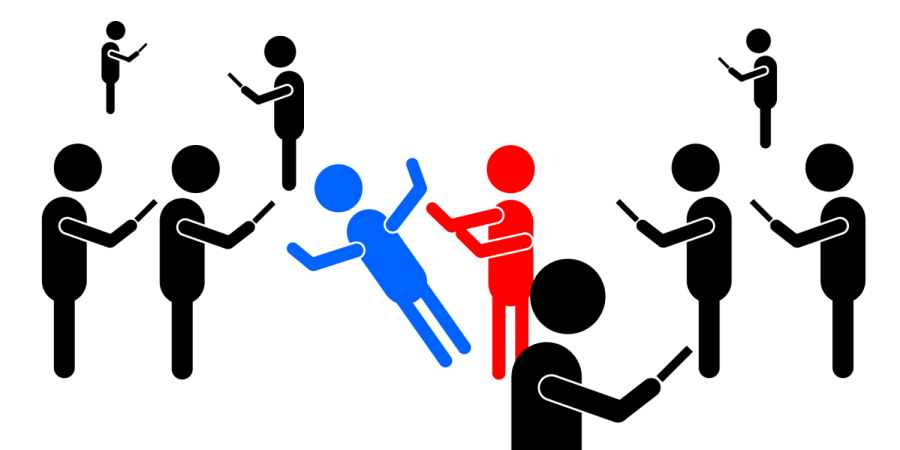Opinion | Bystander effect isn’t an excuse
November 15, 2021
I, like most, have faith in humanity. I hope that if I were ever in dire need of help, people would step in to make a quick, helpful phone call to the police — especially so if the event took place in broad daylight with other witnesses capable of assistance. Unfortunately, this is not the behavior most recently exhibited in Philadelphia.
On Oct. 12, a woman was publicly harassed for 40 minutes and raped on a Southeastern Pennsylvania Transportation Authority train in the Philadelphia metro area. This appalling event was observed by numerous passengers, who did nothing to stop this from happening. Those on board didn’t make the critical decision to call the authorities but decided to rather record the violation.
It wasn’t a matter of inability to do something, it was an active choice to capture the event.
Social psychologists call this phenomenon the bystander effect. It states that people are less likely to help someone when there are others around. The reasoning behind this is that when there are others around, one assumes that someone else will take action. However, since everyone’s assuming this, nobody initiates action.
Alongside the bystander effect, there is also the diffusion of responsibility. This further explains the bystander effect with the idea that when others are around, the responsibility to take action is split between the witnesses or bystanders. Thus, diffusion of responsibility makes each individual feel less inclined to do something.
Get The Daily Illini in your inbox!
Though these phenomenon exist and are true, it doesn’t mean they are inevitable. After a woman is harassed for 40 minutes, and once it becomes clear that others won’t do anything, certainly a bystander must transition into action. However, in the Philadelphia case, any action was tragically absent.
It’s a naturalistic fallacy to claim that because the bystander effect occurs, no change to human action can be committed.
We possess the capacity to critically think in such strenuous situations, especially if the event’s occurring for a while. If you have the opportunity to shockingly stand and record a video of someone being assaulted, you have the means to call the police.
The passengers themselves aren’t responsible for what transpired: no matter the debilitating initial shock. However, the inhuman decision to record the event rather than report and combat the attack is worthy of immense criticism.
When it comes to our duty for fellow humans, we don’t owe each other anything. Nevertheless, we do owe each other humanity. Without being able to count on one another for minimal help or compassion, we lose the most important pieces of what makes us human.
Sanchita is a freshman in LAS.







